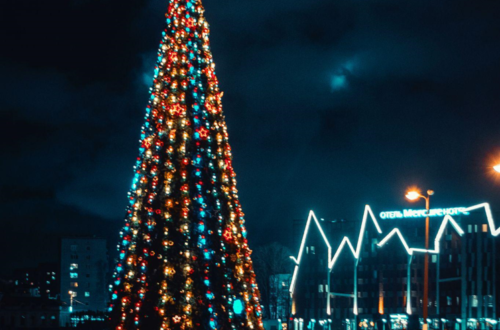
The Origins of Twelfth Night: How Pagan Celebrations Transformed into a Christian Holiday
Pagan Origins: The Roots of Twelfth Night Celebrations
Twelfth Night, also known as Epiphany Eve, is a traditional Christian holiday celebrated on January 5th, which marks the end of the twelve days of Christmas. However, the origins of this holiday date back to ancient pagan times.
In ancient Rome, the festival of Saturnalia was held in mid-December to celebrate the winter solstice. This week-long celebration was characterized by gift-giving, feasting, and the reversal of social roles, where masters served their slaves and the poor were allowed to enter the houses of the wealthy.
The Roman Empire also celebrated the winter solstice with the festival of Dies Natalis Solis Invicti, or the Birthday of the Unconquered Sun, which honored the rebirth of the sun and the lengthening of days.
With the spread of Christianity, the Church sought to replace these pagan holidays with Christian celebrations. Thus, in the fourth century, Bishop Liberius of Rome declared December 25th as the official date of Jesus’ birth, effectively linking it with the pagan festivals of Saturnalia and Dies Natalis Solis Invicti. However, it wasn’t until the Middle Ages that the twelve days between Christmas and Epiphany were officially recognized as a Christian holiday.
Traditional Twelfth Night Foods and Customs: From Wassailing to King Cake
During the Middle Ages, Twelfth Night was a time of great festivities and merriment, with feasting, dancing, and gift-giving. In England, the holiday was marked by the election of a Lord of Misrule, who presided over the revelries and ensured that everyone had a good time. The Twelfth Night cake was also a popular tradition, in which a bean and a pea were baked into a cake, with the individuals who found them becoming the king and queen of the night.
However, with the Protestant Reformation in the sixteenth century, many of these Catholic and pagan-based traditions were frowned upon or abolished. Under the Commonwealth of England, celebrating Twelfth Night was even prohibited, with the holiday being seen as a symbol of the decadence and excess of the monarchy.
Today, Twelfth Night is still celebrated by many in different parts of the world, albeit in varying forms. In Spain and Latin America, the holiday is known as El Día de los Reyes (The Day of the Kings), where children receive gifts from the “three wise men,” who represent the Magi who visited Jesus on the night of his birth. In some parts of Europe, Twelfth Night is observed with large bonfires and the burning of the Christmas tree to mark the end of the holiday season.
In conclusion, Twelfth Night is a holiday that has undergone significant transformation throughout history, from its pagan roots to its Christian adaptation and subsequent development into a secular celebration. It is an excellent example of how religion and culture can merge and evolve over time, creating a holiday with unique and diverse traditions that continue to be celebrated today.




